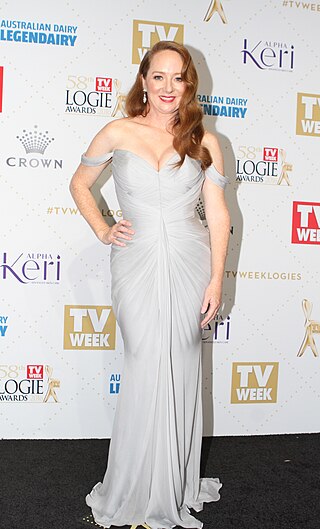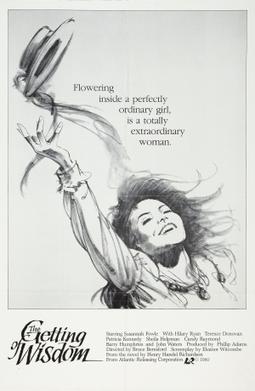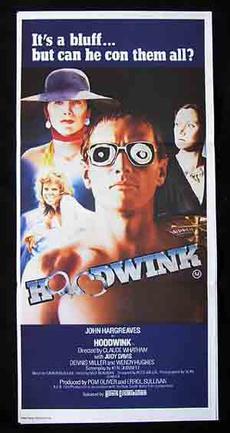
The cinema of Australia began with the 1906 production of The Story of the Kelly Gang, arguably the world's first feature film. Since then, Australian crews have produced many films, a number of which have received international recognition. Many actors and filmmakers with international reputations started their careers in Australian films, and many of these have established lucrative careers in larger film-producing centres such as the United States.

Jack Thompson, is an Australian award-winning actor, who is a major figure of Australian cinema, particularly Australian New Wave.

Phillip Andrew Hedley Adams, is an Australian humanist, social commentator, broadcaster, public intellectual and farmer. He hosts Late Night Live, an Australian Broadcasting Corporation (ABC) program on Radio National four nights a week. He also writes a weekly column for The Weekend Australian.

Bruce Beresford is an Australian film director and screenwriter. He has made more than 30 feature films over a 50-year career, both locally and internationally in the United States.
Timothy Burstall AM was an English Australian film director, writer and producer, best known for hit Australian movie Alvin Purple (1973) and its sequel Alvin Rides Again (1974).

Alvin Purple is a 1973 Australian sex comedy film starring Graeme Blundell in the title role; the screenplay was written by Alan Hopgood and directed by Tim Burstall, through his production company Hexagon Productions and Village Roadshow.
Don's Party is a 1971 play by David Williamson set during the 1969 Australian federal election. The play opened on 11 August 1971 at The Pram Factory theatre in Carlton.

The Adventures of Barry McKenzie is a 1972 Australian comedy film directed by Bruce Beresford and starring Barry Crocker, telling the story of an Australian 'yobbo' on his travels to the United Kingdom. Barry McKenzie was originally a character created by Barry Humphries for a cartoon strip in Private Eye. It was the first Australian film to surpass one million dollars in Australian box office receipts. A sequel, Barry McKenzie Holds His Own, was produced in 1974.

Emerald City is a 1988 Australian comedy-drama film directed by Michael Jenkins, based on the 1987 play of the same name by David Williamson. Much of the play's dialogue is retained, though discussion of off-stage characters is usually replaced with their appearance, and a more conventionally cinematic level and speed of dialogue is maintained. Also, the younger daughter Hannah is omitted.
The following lists events that happened during 1945 in Australia.

Mandy McElhinney is an Australian actress best known for playing Rhonda in AAMI insurance advertisements. She appeared on the sketch comedy television series, Comedy Inc., from 2003 to 2006. She appeared as Gina Rinehart in the telemovie The House of Hancock, alongside Sam Neill in 2015. McElhinney played Jackie Walters, federal agent and team leader of the Australian Federal Police Counter-Terrorism Unit in the television drama thriller series Hyde & Seek that premiered on the Nine Network in October 2016.

The Getting of Wisdom is a 1977 Australian film directed by Bruce Beresford and based on the 1910 novel of the same title by Henry Handel Richardson.
Stork is a 1971 Australian comedy film directed by Tim Burstall. Stork is based on the play The Coming of Stork by David Williamson. Bruce Spence and Jacki Weaver make their feature film debuts in Stork, being honoured at the 1972 Australian Film Institute Awards, where they shared the acting prize. Stork won the prize for best narrative feature and Tim Burstall won for best direction. Stork was one of the first ocker comedies. Stork was the first commercial success of the Australian cinema revival called the Australian New Wave.
Don Parties On is a 2011 play written by David Williamson. It was a sequel to Don's Party and opened the 2011 season of the Melbourne Theatre Company. Directed by Robyn Nevin, this sequel premiered on 13 January 2011 at the Arts Centre Melbourne Playhouse.

Hoodwink is a 1981 Australian thriller film directed by Claude Whatham and written by Ken Quinnell. It stars John Hargreaves and Judy Davis with Geoffrey Rush in his feature film debut. The film is based on the true story of a well-publicised Australian con artist. It was nominated for eight Australian Film Institute Awards, with Davis winning the Award for Best Actress in a Supporting Role.
Jeanie Drynan is an Australian film and television actress well known for her roles in the television series Class of '74, as Muriel's mother in the 1994 film Muriel's Wedding and as solicitor Angela Jeffries in the cult classic television series Prisoner Cell Block H.
The 1977 Australian Film Awards ceremony, presented by the Australian Film Institute (AFI), honoured the best Australian films of 1976 on 21 September 1977 at Regent Theatre, in Sydney, New South Wales. It was televised on ABC. Actors Keir Dullea and Karen Black, and former Australian Prime Minister John Gorton hosted the show.
The 22nd Australian Film Institute Awards ceremony, presented by the Australian Film Institute (AFI), honoured the best Australian feature films of 1980, and took place on 17 September 1980 at Regent Theatre, in Sydney, New South Wales. The ceremony was hosted by Graham Kennedy and televised in Australia on ABC.
Harold Douglas Hopkins was an Australian film and television actor.
Veronica Lang is an Australian-born actress, who started her career in England in theatre and television, before working in her native country, she also briefly worked in America. She won the 1977 AFI Award for Best Actress in a Supporting Role for her role in the film adaptation of Don's Party and the 1980 Logie Award for Best Supporting Actress in a Miniseries/Telemovie for A Good Thing Going.










